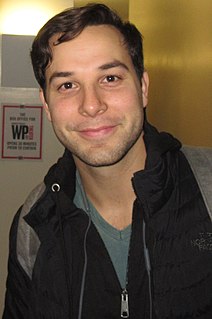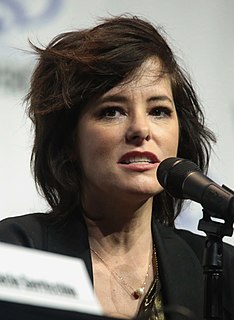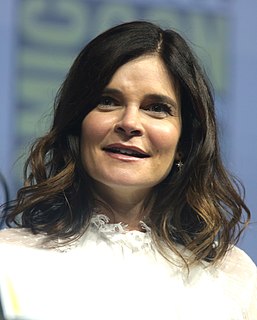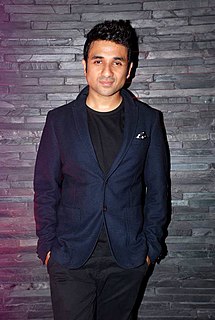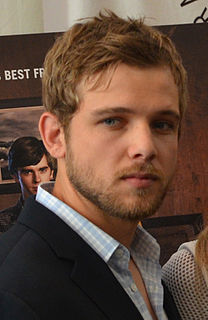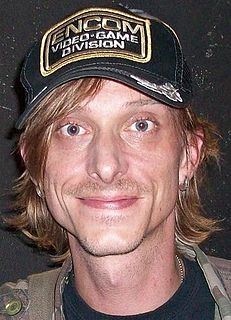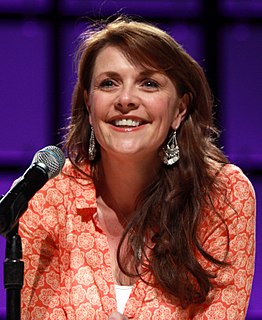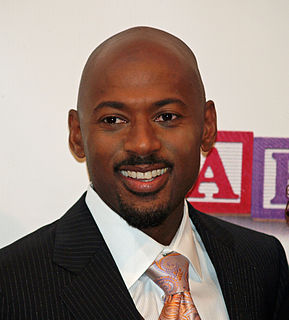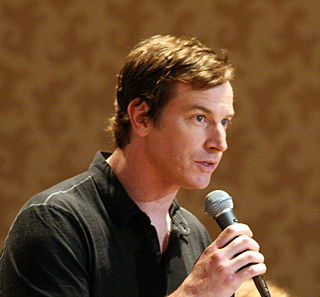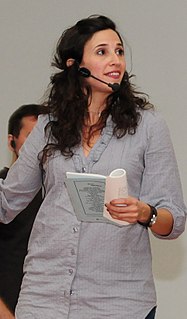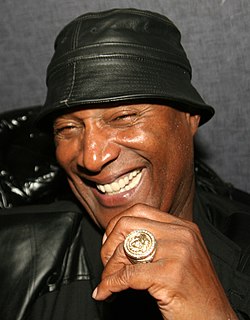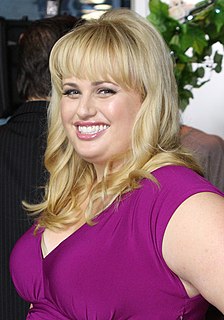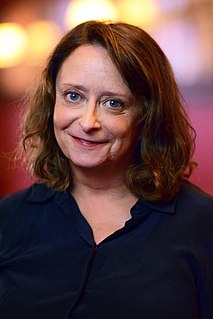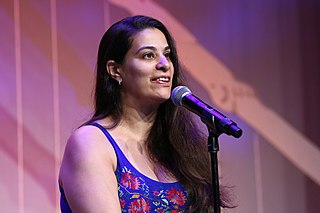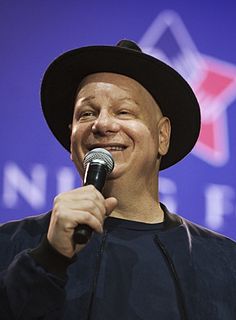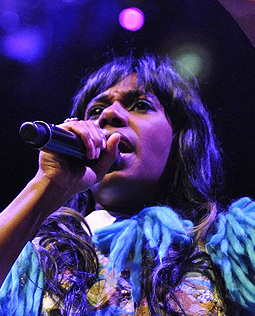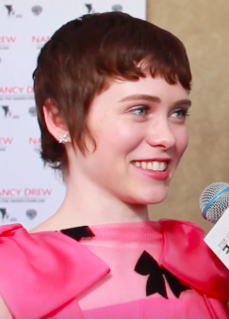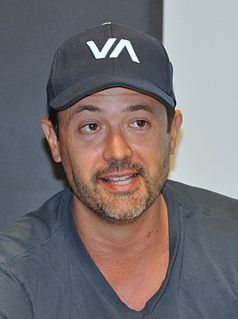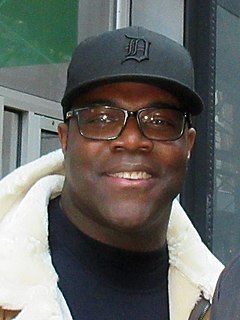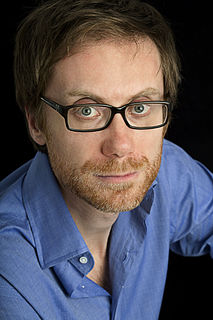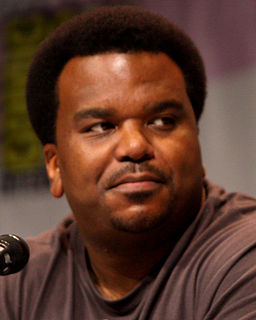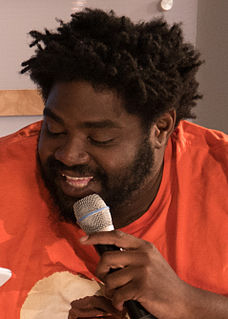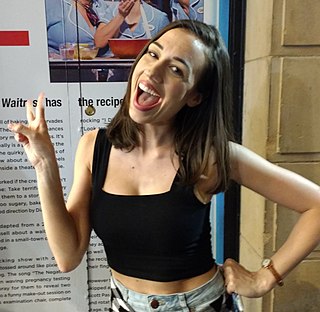Top 1200 Tragedy And Comedy Quotes & Sayings - Page 17
Explore popular Tragedy And Comedy quotes.
Last updated on April 19, 2025.
When I was a little kid, I was a huge fan of 'The Kids in the Hall.' They were like my boy band. I was obsessed with sketch comedy. Being raised Christian, I was somewhat sheltered from the more radical high-art world. So to me, comedy was where people got to express themselves in an abstract way. It was a big part of my growing up.
I had always drawn, every day as long as I had held a pencil, and just assumed everyone else had too…Art had saved me and helped me fit in…Art was always my saving grace…Comedy didn’t come until much later for me. I’ve always tried to combine the two things, art and comedy, and couldn’t make a choice between the two. It was always my ambition to make comedy with an art-school slant, and art that could be funny instead of po-faced.
It's always the girl comedy and the guy comedy. It bums me out. You'd think there'd be a progression, from James L. Brooks and Nora Ephron into more subtle humor and behavior and psychology. All these interesting things people can learn about themselves by watching talented writers comment intelligently on someone else's emotional life.
Here's a woman, a real pioneer for other women looking for careers in stand-up comedy. And talk about guts - she would come out here and sit in this chair and say some things that were unbelievable - where you would have to swallow pretty hard... but it was hilarious... the force of her comedy was overpowering.
I think, in general, when you're doing comedy, you're having a good time regardless of the comedy table tennis that you're playing. I think you want that, too: you're rooting for two characters to be together, and you should feel that even when they're angry at each other, they're still in synch with each other.
The funny thing about The West Wing is - and I don't know what Aaron Sorkin says about it - but I'm convinced it was a comedy. It's a very intellectual and cerebral comedy, but it was SportsNight in the White House. It had an energy and a vitality and an intelligence and a passion that's rare. And it was extremely difficult to do, because they were so demanding about the dialogue.
Comedy in the past hasn't spoken to women because it wasn't written by women, and male writers don't make women three-dimensional characters. Too often, women just facilitate the man's comedy: they're not crazy; they're not funny. But women are as vulgar as they are elegant, as stinky as they are smelling of eau de parfum.
I've always been a fan of comedy, and I understood from a young age that what makes most comedy work is the immediacy of first person experience. I'd spent a lot of time from 1995-1998 focusing almost exclusively on poetry, and it's an incredibly difficult form in which to achieve a sustained comic tone unless you're Alexander Pope.
To me, Fight Club was a comedy. When [David] Fincher sent me the book and I read it, the first thing I asked him was, "This is a comedy, right?" he said, "Yeah, that's the whole point," and I said, "Okay, I'm in." I certainly wasn't imagining myself as a dramatic actor when I was running around in my underwear in that film.
You know, sometimes I worry, you know, is comedy and my type of comedy going to get stale? Is it going to be so offensive that it becomes uninteresting or so niche that I don't have an audience anymore? But it keeps getting bigger and bigger and bigger, where roasting now is a movement. These roasts are on in India, in Mexico.
I think that 'Mr. Show' was a huge influence on me. It was literally the reason I started doing comedy, because I was asked to do a bit at The Comedy Store, and B.J. Porter and I went to see Bob and David - who I'd never heard of - do a live show, which was one of the shows that got them the 'Mr. Show' show.
When people say, 'How did you start in comedy,' I say my family was kidnapped by ninjas when I was very young, and to get them released I had to do a killer five-minute set. And even after I did that, you know, I started doing comedy under tough circumstances, I still kept at it because I enjoyed it.
I'm proud of everything I've done. If it's comedy, it's 'cause I think it's funny. If it's a drama, it's impactful. I'm leaning towards dramas now because I wrapped a couple comedies in a row. I don't like watching myself, but it's easier on me when I don't have to carry a lot of the comedy. But I enjoy making comedies but dramas come more naturally.
As a woman, she [Penelope Cruz] obviously has changed as she has become an adult. But, as an actress, I actually might say that she has not changed that much. And she has something great, especially in comedy, and she hasn't been exploited as much as she could be in comedy, but particularly in that mix between comedy and drama. She's got a very special quality about her. You can place her in very extreme situations, especially very painful situations, in terms of how her character interprets it. And sometimes, the deeper and more human that pain is, the better she is at it.
...the tragedy of consumerism: one acquires more and more things without taking the time to ever see and know them, and thus one never truly enjoys them. One has without truly having. The consumer is right-there is pleasure to be had in good things, a sacred and almost unspeakable pleasure, but the consumer wrongly thinks that one finds this pleasure by having more and more possessions instead of possessing them more truly through grateful contemplation. And here we are, living in an economy that perpetuates this tragedy.
I think for me, the best comedy comes from when something feels real and genuine, so even though Miranda is this wacky character, there is a real vulnerability to her that we finally get to show in 'Haters Back Off,' and I think that's what makes this comedy rich and more fulfilling, at least for me.




